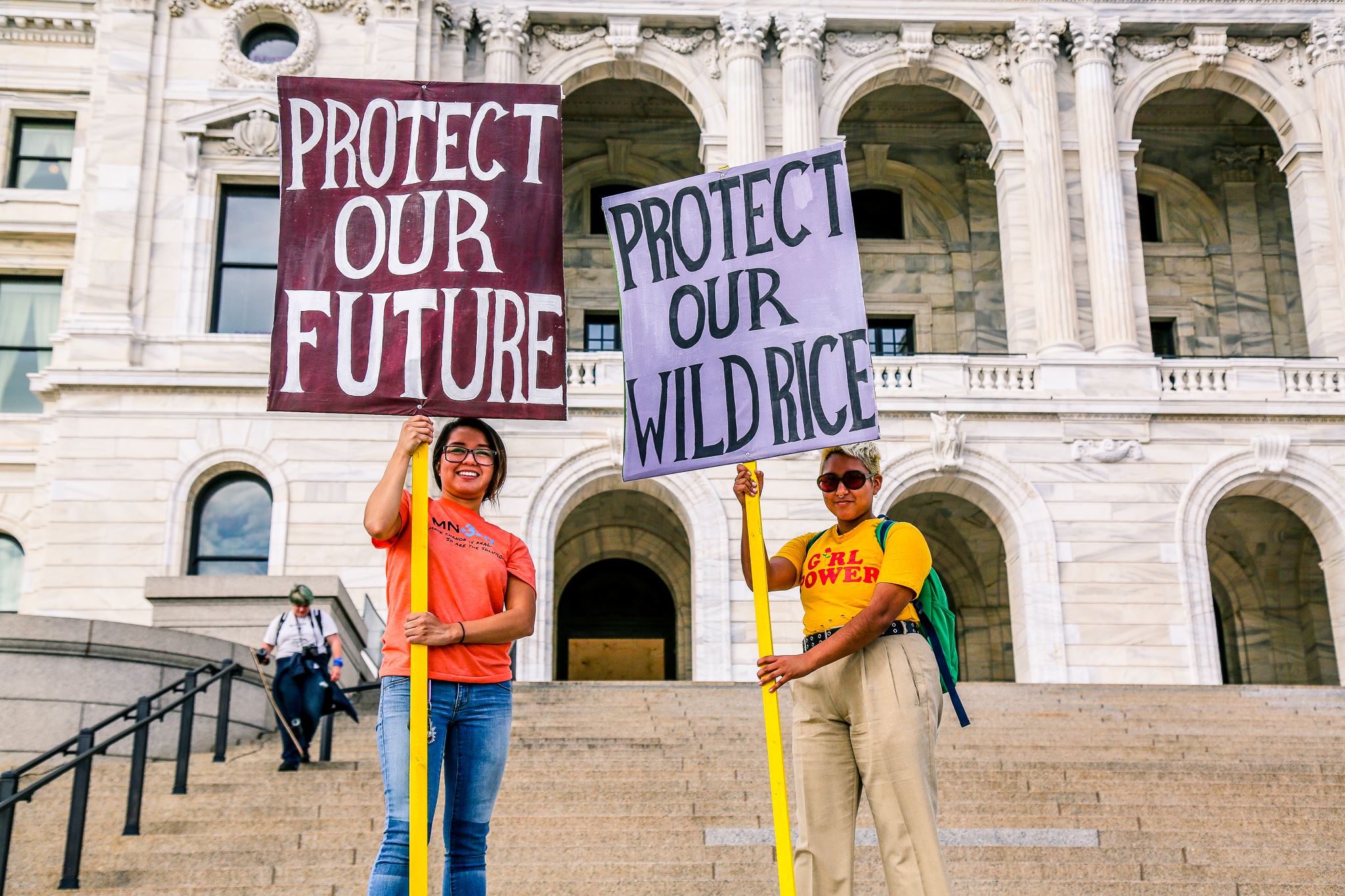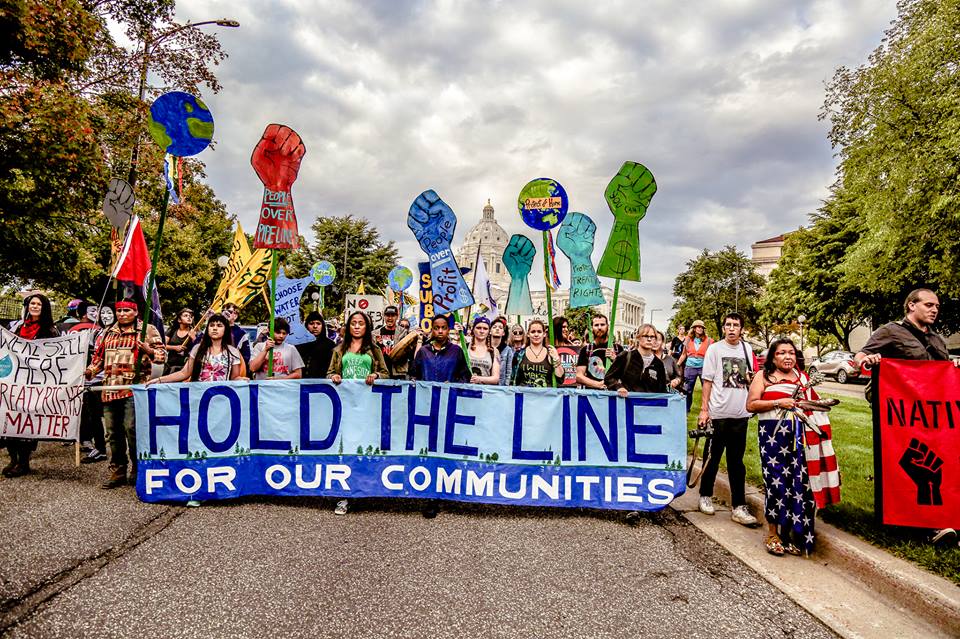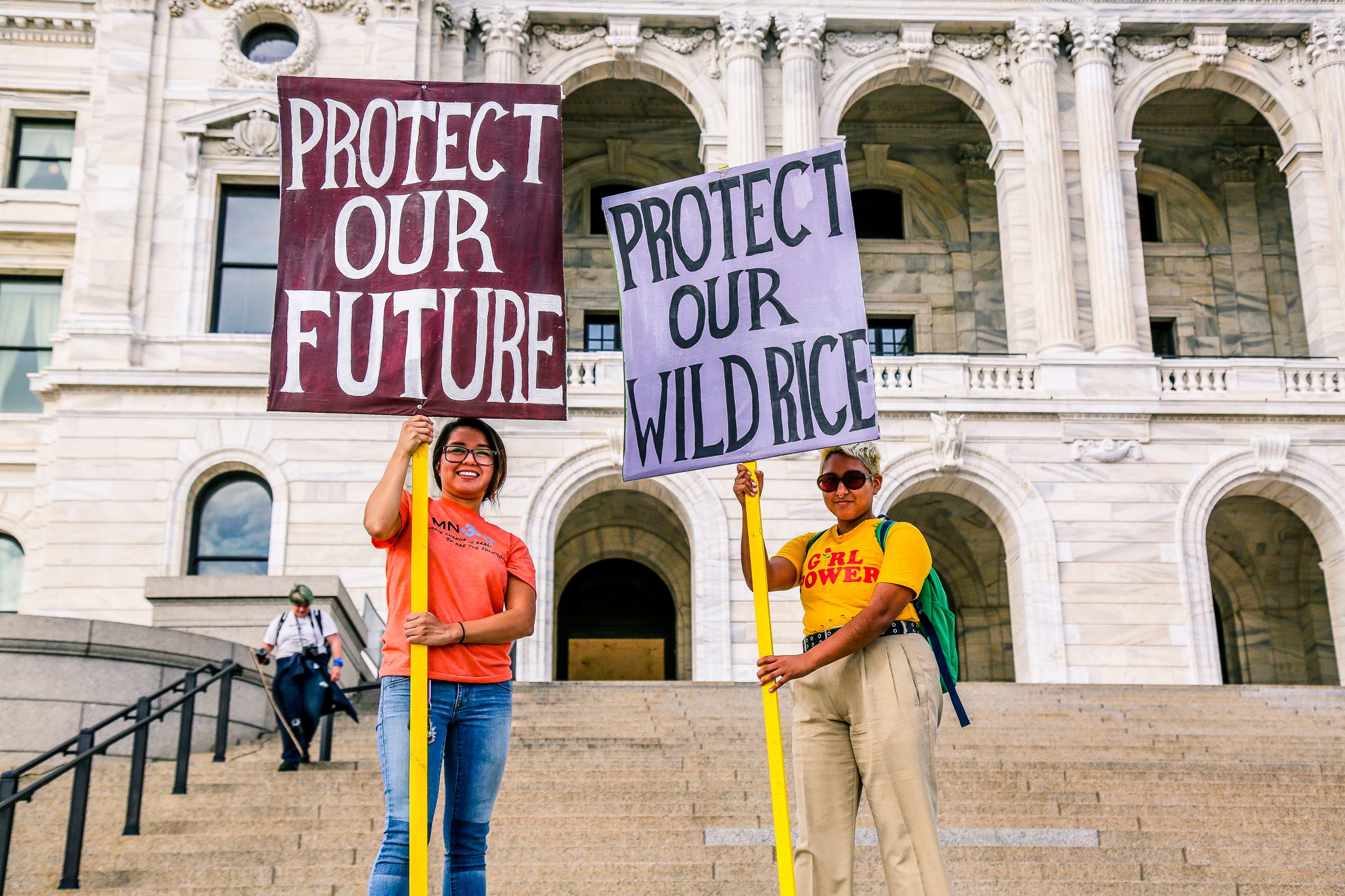Tar sands pipelines are proving to be a risky business: three major pipeline projects have stalled in the last two years. Economically, socially, and environmentally, new tar sands projects carry profound hazards – jeopardizing Indigenous rights and climate stability while riding the waves of an unpredictable oil market. Calgary-based energy giant Enbridge has dug its heels in deep, pushing the new 1,000 mile Line 3 project that would carry tar sands from Alberta to Wisconsin through Minnesota – the largest investment this company has made to date.
Line 3 is a hugely controversial project. The five Ojibwe nations in Minnesota whose lands would be crossed by the pipeline are all strongly opposed to the pipeline due to its impact upon their territories, especially the culturally significant wild rice beds. Environmentalists, and landowners along the proposed route, oppose the project. Minnesota’s commerce department has concluded that the state does not need the project, and an Administrative Law Judge has ruled that the state’s Public Utility Commission should deny Enbridge its preferred route.
If the pipeline survives its regulatory and legal challenges, Enbridge is going to continue to need capital from banks to make it possible. Finance for Enbridge Energy Partners is finance for Line 3. Enbridge is not seeking project-specific financing for the pipeline and is instead funding the project from its general funds. Therefore any loans to the already heavily-indebted company will facilitate the construction of Line 3.
JPMorgan Chase, Wall Street’s worst offender when it comes to funding tar sands, and French behemoth Crédit Agricole are joint bookrunners and lead arrangers for a $625 million line of credit for Enbridge Energy Partners, the subsidiary building the U.S. portion of the Line 3 pipeline, set to renew on June 29th.
Last December, Crédit Agricole put forth a commitment to “exclude the least energy efficient hydrocarbons and those that pose the greatest threat to the environment, because these are incompatible with the goal of combating climate change and they represent an economic risk for investors.” This policy should ensure that Crédit Agricole would exclude financing for tar sands production and pipeline projects. Despite this important commitment, Crédit Agricole continues to support Enbridge.
The new Line 3 pipeline directly threatens Indigenous rights and culture. Its route would pierce the heart of the 1855 Treaty territory, where members of five signatory Ojibwe bands retain the rights to hunt, fish, harvest wild rice, conduct religious ceremonies, and travel. Wild rice harvesting lies at the core of Ojibwe culture, and is explicitly defined as a right in the treaties of several bands of Ojibwe with the U.S. government.

The inherent risks pushed by the Line 3 pipeline project conflicts with the treaty rights of the Ojibwe peoples. Harm to the wild rice beds of the Ojibwe people in this area threatens irrevocable and devastating cultural impacts.
The united opposition of Ojibwe tribes demonstrates that Enbridge’s Line 3 project violates the internationally recognized principle of Free, Prior and Informed Consent for impacted Indigenous peoples.
Hypocrisy runs deep in the banking industry. JPMorgan Chase has a policy which states that its clients must demonstrate that they are “Ensuring the Free, Prior and Informed Consent of the Affected Communities of Indigenous Peoples when the circumstances described in Performance Standard 7 are present; and Respecting and preserving the culture, knowledge, and practices of Indigenous Peoples.” And yet, JPMorgan Chase continues, multiple times per year, to reaffirm its corporate level financial support for Enbridge and all of their projects, including the Line 3 pipeline.
The banks’ due diligence assessing environmental and social risk has failed. However, with $625 million in credit for Enbridge set to expire at the end of this month, the banks have an opportunity to step away. Crédit Agricole and JPMorgan Chase could let the credit expire and pause for a moment to assess the unacceptable risks of the corporate lending they provide that supports Indigenous rights abuses and its incompatibility with climate stability.
The Minnesota state and national permitting processes for Line 3 concludes this summer. Many uncertainties, challenges and questions linger with the proposed pipeline route for Line 3. Even if a route is approved, Enbridge and its supporters should expect continued delays with increased risks including a strong Indigenous population battling for cultural survival and motivated local, regional and national communities working towards climate stability.












